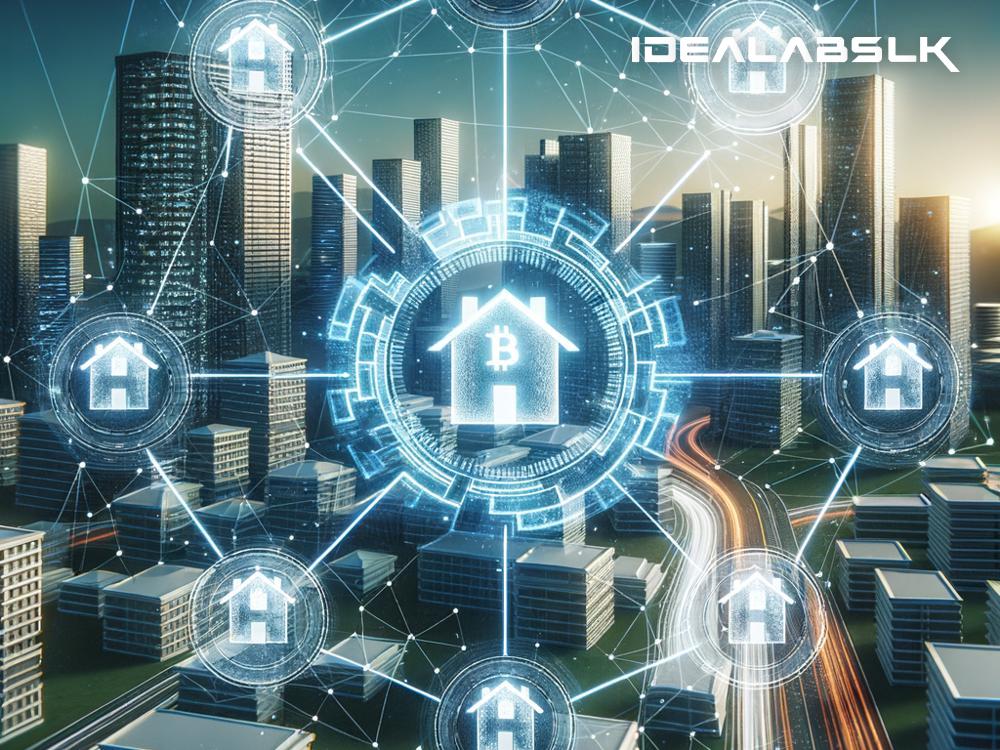Blockchain-Based Solutions for Real Estate Trust Management: Simplifying Ownership and Investment
The world of real estate has always been complicated, filled with heaps of paperwork, a long chain of intermediaries, and a constant cloud of skepticism over trust and transparency. However, the integration of blockchain technology into real estate promises to streamline these complexities, making property transactions more transparent, quicker, and arguably more trustworthy. Let's dive into how this technology is changing the game for real estate trust management.
What is Blockchain?
To understand the revolution, it’s crucial to grasp what blockchain is. At its simplest, blockchain is a system of recording information in a way that makes it difficult or impossible to change, hack, or cheat the system. Imagine it as a digital ledger of transactions that is duplicated and distributed across the entire network of computer systems on the blockchain.
Transparency and Trust in Real Estate
Real estate deals involve a significant amount of trust. Buyers, sellers, and intermediaries need to have confidence in the validity of property titles, the authenticity of transactions, and the integrity of financial interactions. Historically, this trust has been established through cumbersome legal documents, intermediaries, and regulatory checks, which, while necessary, have made the process slow and expensive.
Blockchain technology proposes a simpler solution by creating an immutable and transparent transaction ledger. Once something is recorded on a blockchain, it's very difficult to alter without being noticed, which directly contributes to the reliability and security of the information.
Simplified Transactions and Reduced Costs
Blockchain can dramatically reduce the need for intermediaries such as lawyers, banks, and brokers in real estate transactions. By using smart contracts – self-executing contracts with the terms of the agreement directly written into code – transactions can be completed faster and with fewer costs. These smart contracts automatically enforce and execute the terms of agreements, reducing the time and expense associated with traditional real estate transactions.
Tokenization of Real Estate Assets
One of the most revolutionary aspects of blockchain in real estate is the concept of tokenization. This means dividing a property into tokens that represent ownership stakes. These tokens can be bought and sold on blockchain platforms, allowing for more fluid investment in real estate. With tokenization, even smaller investors get the opportunity to invest in significant real estate assets, democratizing access to real estate investment and potentially increasing the liquidity of these assets.
Better Data Management and Accessibility
The decentralized nature of blockchain ensures that all participants in a transaction have access to the same information, which can significantly improve data management in real estate. This transparency can reduce fraud and errors, and the immutable record of transactions can help resolve disputes more efficiently. Furthermore, blockchain could streamline property management tasks by securely storing records of leases, payments, and maintenance activities.
Overcoming Challenges for Widespread Adoption
Though the potential benefits of blockchain in real estate are immense, there are hurdles to its widespread adoption. Regulatory acceptance, technological understanding, and integration with existing systems are significant challenges. For blockchain to become a mainstay in real estate, there needs to be a concerted effort towards standardization, educating stakeholders, and navigating legal frameworks to accommodate this new way of managing property transactions and ownership.
The Future of Real Estate with Blockchain
Imagine a future where buying a house or investing in a property is as simple and transparent as purchasing a book online. With blockchain, this future is within our grasp. The real estate world stands on the brink of a technological revolution that could redefine trust management, making transactions more secure, transparent, and accessible to everyone.
Through blockchain technology, real estate investment and ownership are poised to become more inclusive, efficient, and trustworthy. While there are challenges to overcome, the strides being made towards integrating blockchain into this age-old industry promise to unlock tremendous value for all stakeholders involved.
In summary, blockchain presents a compelling solution to the endemic issues of trust, transparency, and inefficiency in real estate. By fostering a more secure, streamlined, and inclusive environment for property transactions and investment, blockchain is not just a technological advancement; it's a blueprint for a more equitable future in real estate. Whether you’re a buyer, seller, investor, or manager, the blockchain revolution in real estate is something to watch closely, as it holds the potential to transform the landscape of property ownership and investment in unprecedented ways.

